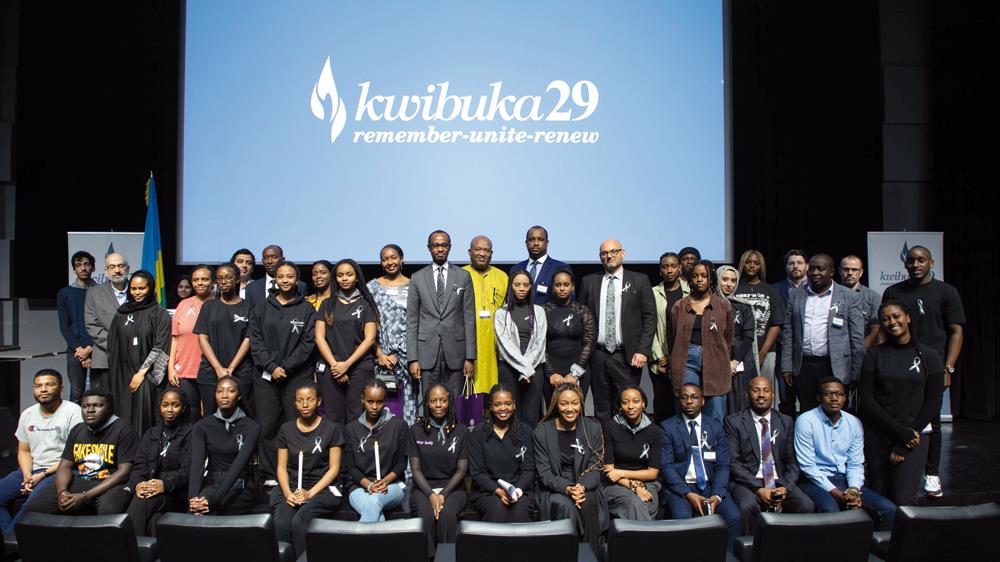(MENAFN- The Peninsula) The Peninsula
Northwestern Qatar students, faculty, and staff, along with members of the Education City community, came together for the 29th commemoration of the 1994 genocide against the Tutsi in Rwanda at a Northwestern Qatar community event.
The event was organized by the African Students Association at Northwestern Qatar and attended by the Ambassador of Rwanda to Qatar, H E Igor Marara.
Hosted as part of the annual Kwibuka commemoration where Rwandans and the international community honor and remember the more than one million Tutsi who lost their lives during the 1994 genocide in Rwanda, the event featured a community screening, speeches by students under the theme“Remember, Unite, and Renew,” and talks about journalism and its role in confronting genocide denial and revisionism.
The event began with an address by Northwestern Qatar Dean and CEO Marwan M. Kraidy, in which he renewed the school's commitment to educating future journalists and leaders to be guided by moral clarity.“We are here today to remember one of the very darkest episodes in recent human history and to stand in solidarity with the great people of Rwanda who, to this day, grapple with the event.”
He added,“We at Northwestern Qatar renew our pledge to educate future journalists, media makers, storytellers, researchers, and diplomats whose excellence shall extend beyond professional competence to moral clarity, so then they may contribute to making sure that all kinds of hatred, xenophobia, racism, antisemitism, Islamophobia, and other forms of discrimination have no place to thrive on earth.”
The event also featured a lecture by Tom Ndahiro, a Rwandan researcher who specializes in genocide ideology and genocide denial. In his talk, Ndahiro tracked the history of anti-Tutsi crimes in Rwanda and examined the role of radio, television, and mass media in spreading anti-Tutsi hatred before and during the genocide against the Tutsi.“What happened in 1994 is not something that was contentious,” said Ndahiro,“The genocide against the Tutsi wasn't a spontaneous action hatched up at a moment's notice by men and women in the blind grip of unreasoning hatred. It was an idea, an ideology, a plan to create a new Rwandan world cleansed permanently of Tutsis.”
Highlighting examples of how media language in 1963 normalized incitement of the extermination of Tutsi and violence against them, Ndahiro said,“Mass media became a mass murder.” He went on to warn against the spread of contemporary forms of genocide denialism ideology and the role of media in combating them, noting,“Genocide denial is the ultimate stage of the genocidal process which perpetuates the crime.”
He added,“As journalists and researchers, we have a duty to fight the ideology of genocide deniers whose mission is to kill the memory of genocide and to pave the way for the loss of more lives.”
Ambassador Igor Marara, joined the event and talked about the role of universities in combating genocide denialism and revisionism by hosting such events.“I believe there is no better place in which to recall our commitment to fight genocide ideology and the denial of the genocide against the Tutsi, said Marara.
“Some institutes of higher learning have been captured in the agenda of spreading revisionist narratives about the genocide against the Tutsi, and I think it's important that in this setting, we raise awareness about how the denial of genocide and the stalking of hatred is still a reality today,” he added.
The Kwibuka29 commemoration by the African Students Association is one of many student-led events hosted at Northwestern Qatar community.



















Comments
No comment